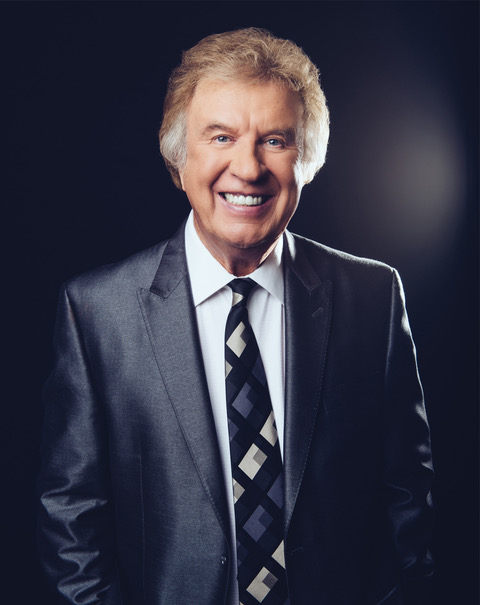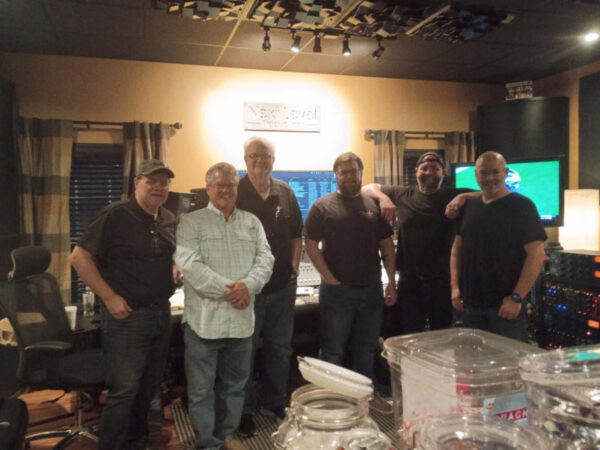Just What He Needed
Mark 2:1-5
This week’s Rooted is a little longer than normal. I hope that you’ll read it all the way through. This is one of the most beautiful pictures that I’ve seen in Scripture – the way that Jesus deals with an outcast – in quite some time. I pray that it will speak to you like it has spoken to me.
He was tortured—not only by his condition but also by his mindset.  He was a paralytic. His body was useless. He couldn’t do any of the things normal people would do. Simple things such as going for a walk, feeding himself, going to the restroom alone, cleaning himself, and going to synagogue were all out of the question for him.
He was completely dependent upon others to complete these simple tasks that we so easily take for granted. Physical needs can be tended to. Perhaps begrudgingly, but there would be those who would care enough to do what was necessary. They would bear the burden of another. They would tend to this man’s physical needs.
We’re more than just physical beings, however. We’re packed with feelings, and powerful emotions. He was not exempt.
Of course, no one can know—no one besides the man—what he was truly feeling. However, we doknow how others felt about him. With the exception of his four genuine friends, others believed he was getting what he deserved. Surely his affliction was a penalty for a huge sin in his life. (Remember the question in John 9:1-5 that the disciples asked about the blind man: Is this man blind because of sin in his life or sin in his parents’ lives?) It’s the same idea as the leper; because of sin in his life God has removed His hand of mercy.
This was payment.
This was deserved.
Memory Is a Powerful Thing
If you’re told something long enough—regardless of reality—you begin to believe it. If a father tells his son he’s stupid over and over again, he’ll eventually believe it. Memory is why elephants can be controlled with simply one small chain attaching one foot to a tree stump.
When the elephant is still a baby, the owner chains it to something heavy, so he won’t escape camp. It’s free to roam during the day, but each night it’s chained. Eventually, the elephant grows in size, weight, and strength. When the chain is put back on his foot and fastened to a small stump, he could easily pull the stump out of the ground or even break the chain. But because of the elephant’s strong memory, he believes the chain is stronger than he is. While his foot is chained, he is forever a prisoner to the chain.
​Transition to the paralytic.
​For years he’d been chained to feelings of inadequacy.
​He was tortured.
Ostracized. The name-calling. And so many questions.
​Why him? Why this? Will it ever end?
Maybe the stain went much deeper. Maybe he knew what he’d done. If the paralysis was the result of some terrible accident later in life, perhaps he could point to the sin, the cause for this result. No one else might know, but he did. He felt he deserved it, that this was fair penalty.
If only he could go back . . .
make different decisions . . .
his life would be different.
The mat was a sentence—
a life sentence that he would have to accept.
Taken to Jesus
​He was tortured.
​But, Jesus was in the house.
​They carry him to Jesus.
You remember the scene in our last chapter. We witnessed the effort of the four friends. Their care and concern was evident. But, the house was overflowing. They’ve got to get to Jesus. This burden had become too much to bear. Touching Jesus was all that mattered.
The curiosity of the crowd kept them from getting through the door.  The desperation of their circumstance and the determination not to let this opportunity pass found them on the roof. They lay him down in the corner and spring into action. Unroofing the roof. Removing the tile. Digging through the thatch and mortar. As they labor, he’s once again alone with his thoughts. . . .
Was he embarrassed? I wish they wouldn’t. I didn’t ask for this.
Was he angry? You have no idea how I feel! And you’re only making it worse!
Was he self-conscious? Once again, the center of attention. The stares never end.
Was he grateful? Thank you! You’re enabling me to accomplish what I could never do on my own.
​
He Was Confused
​He probably felt a mixture of all the above. Plus—he felt judged!
Let’s not lose sight of what’s going on here. He was the punished—the outcast seemingly as judgment of God.
Now, he’s had a stark reminder of how the people felt about him as they refused to let them pass through the door. He was able to hear the insults, to see the looks of disdain. It was simply the reality of his condition—the repeated percussion of worthlessness and despair.
​On top of this, the men who had carried him here were now doing the unthinkable. They were tearing a hole in the roof. Do you realize how improper this action is?
Normal people don’t act this way.
The roof is there for a reason.
It affords shelter from the elements and shade in the day.
It’s protection from intruders of all kind and provides warmth on a cool night.
You simply don’t destroy another’s property.
What would the homeowners say?
What would they do?
This is completely out of line!
It’s an Interruption
​Don’t forget what’s going on inside the house—what they’re about to interrupt. The Teacher is there. After all, that’s why the crowd has come. This is a teacher unlike any other. He teaches as though He actually knows what He’s talking about.
He speaks with authority!
Rabbis or teachers didn’t like to be interrupted.
It wasn’t looked upon favorably by either student or teacher.
But, that’s exactly what was going to happen.
Questions mounting.
​An unclean, unwanted, unwelcome vandal. That’s what he has become.
​What would be the reaction of the crowd?
​How would the homeowner respond?
​What would the teacher do?
​Tortured.
​There’s no other word for it.
​He felt tortured.
​It pulsated through his veins.
​It taunted his thoughts.
​It seared like a branding iron on soft skin.
​
All the questions would soon be answered. The men approach. With bleeding, dirty hands they take the corners of his prison. They lift and carry him to the hole they’ve made in the roof.
They lower him down. In front of everybody . . . right to the feet . . . of Jesus.
Look at him. Do you see the concern on his face? It’s written all over. The fear? The worry? Life has treated him harshly.
Jesus saw.
Wow. Aren’t you thankful that we have a Jesus who’s concerned about the entire individual? There it is: The benefit! Can you place yourself on that mat? It’s all about you. You’re center stage. Christ’s eyes are focused on you.
He saw his physical need. There’s no question about this. Everybody could see it. He’s on a mat. His body is a twisted, tangled, useless mess. After all, that’s why they brought him here. He can’t walk. He can’t do anything. Physically, he’s broken. His life had become nothing but a burden, to him and everyone else. Â
What Jesus Sees
​Jesus sees beyond the exterior to the interior. He is aware of much more than just the physical brokenness of this man. Looking beyond the shell, He sees the isolation, hurt, questions, and messy emotions. In other words, He sees the torture. He cares for the whole person.
Questions. Fears.
​Feelings of inadequacy.
​Tortured.
​How would the teacher respond?
All questions are answered as Jesus begins to speak:
When Jesus saw their faith, He said to the paralytic, Â
“Son, your sins are forgiven you† (Mark 2:5).
​Did you hear it?
“So . . .â€
That’s how He begins. The first word He says is son.
That’s a big deal.
You see, it really is about YOU.
​May we pause here for just a minute?
If we’re not careful we’ll read right over and miss the beauty of what’s going on. It’s easy to assume that this type of speech was common in Jesus vernacular. But it wasn’t.
This type of language is familial language. In other words, it’s the language of family. In the context of Jewish society in this biblical time if you were referring to one as son, he was actually your son.
Or, if you called someone child or daughter, she really was your child or daughter. It’s family talk. It’s very intimate. And, Jesus simply didn’t talk like this often. He would use the word son if He were speaking of one’s son, or daughter if He were referring to one’s daughter. But for Him to actually address someone as son or daughter was rare.
​Three times.
​That’s all.
​That’s a big deal.
​It’s a really big deal when you begin to realize that the only times you hear Him talk like this is to the outcast, the unwanted, the insecure. The words come from His mouth as an embrace to a fearful child. In the midst of turmoil He speaks comfort, peace, reassurance. Such a beautiful sound!
​The only other times Jesus does this is in Mark 5:34 and in John 13:33.
​They brought him to Jesus.
​The callousness of the crowd made the house impenetrable.
​A hole has been torn in the roof.
​The instruction time of the Teacher has been interrupted.
​The look of concern was on the man’s twisted face.
​Tortured.
​Jesus sees this man. Really sees him. Sure, He sees his physical need. However, He’s sees much more than that. First and foremost, He sees a heart that needs to be reconciled to his Father. He’ll deal with that for sure. His perception is perfect. There’s nothing hidden. He sees the feelings of inadequacy, hears the questions from his heart of why?
The incorrect thinking was obvious and needed to be corrected. So, with a word He verbally caresses the discomfort . . . erases all concern . . . embraces him with His word.
​Son.
​The first word He says.
​He knew him.
​He loved him.
​He called him son.
​Jesus lifts the man from the mat emotionally before He ever lifts Him physically.
​His word spoke life.
​Just what He needed.
Listen.
And, hear Him speak words today that you need to hear . . .












